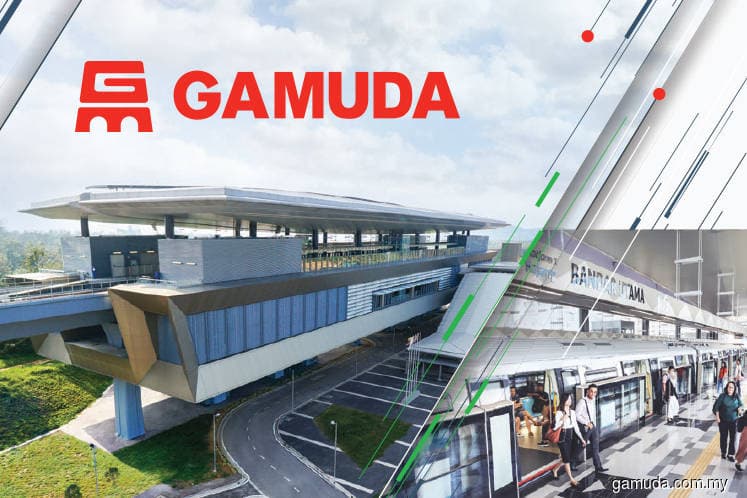
This article first appeared in The Edge Malaysia Weekly on March 25, 2019 - March 31, 2019
INVESTORS in Gamuda Bhd’s securities voiced their views on the nationalisation of the four highway concessionaires in which the contractor has stakes at a meeting with the group on March 15.
According to sources with knowledge of the meeting, Gamuda’s top management attended along with representatives of Hong Leong Investment Bank (HLIB). CIMB Investment Bank Bhd (CIMB IB) sent representatives in its capacity as financial adviser to the government in order to provide feedback on the meeting to the Ministry of Finance (MoF).
The main issue the investors raised was the methodology to be used to determine the valuation of the highway concessionaires. They were also concerned about the possible impact on the capital market if the parties involved failed to agree on a fair valuation.
A source told The Edge that a representative of an investment bank that holds Gamuda’s securities said there appears to be a general lack of understanding of the capital market by the current government. “The banker expressed concern about the impact on the capital market if the government could not adhere to its rules and the sanctity of contracts. He said that if the government did not adhere to the rules of the capital market, the country’s risk premium would increase.”
On the valuation methodology, most of the investors at the meeting believed that the discounted cash flow (DCF) method should be applied to the non-listed highway concessionaires owned by Gamuda. These include Syarikat Mengurus Air Banjir dan Terowong Sdn Bhd (SMART), Syarikat Penyuraian Trafik KL Barat Sdn Bhd (SPRINT) and Kesas Sdn Bhd.
Another source tells The Edge that the investors do not want any departure from the DCF method, as doing so would set a bad precedent for future acquisitions.
Even if the DCF model is adopted, the discount rate is another variable that may cause a heated debate. Should the discount be the yield of Malaysian Government Securities or the fixed deposit rate?
Furthermore, the estimated traffic volume growth is a key determinant of the cash flow from tolls.
Meanwhile, the investors agreed that Lingkaran Trans Kota Sdn Bhd (LITRAK) should be valued based on its parent’s market value. LITRAK is a subsidiary of Lingkaran Trans Kota Holdings Bhd, which is listed on Bursa Malaysia. Gamuda is the largest shareholder in Lingkaran Trans Kota with a 43.57% stake.
However, the sources say that one of the investors raised the issue of the appropriate cut-off date in the calculation of the volume-weighted average market price (VWAMP) in determining LITRAK’s valuation, since its parent’s share price had fallen considerably after the general election (GE14) last year. Since May 14 last year, the counter had declined 19% to last Friday’s close of RM4.33. During the year before GE14, the highway concessionaire was trading at RM5.37 to RM6.15.
“Some investors argued that the VWAMP prior to GE14 should be used. However, this is not the normal practice. Usually, the VWAMP of six months prior to the announcement of the acquisition is used to value a listed company,” says one of the sources.
“Anyway, investment in quoted shares comes with its own risks, and fluctuations in market prices is one of them,” says another.
The question of expropriation was also raised during the meeting, the sources say, because based on the provisions of the Concession Agreements, the government has the legal right to expropriate the highways.
However, the source says that CIMB IB, which is advising the government, is committed to ensuring that this does not happen as it recognises the importance of a fair offer.
“The interests of the shareholders and the government must be aligned. One of the investors even said outright that her institution would walk away from the deal if the offer was unfair,” says a source.
According to the sources, questions were asked about how the government came up with the figure of RM5.3 billion in savings if the highways are nationalised. The investors wanted to know whether the projected savings would be included in the valuation.
CIMB IB is said to have clarified that the RM5.3 billion represents scheduled toll hikes and should be included in the valuation, and that any savings by the government after the acquisition takes place should not affect the DCF.
CIMB IB has clarified that it did not commit to ensuring the manner in which the acquisitions of the highways would take place. It also says it did not represent that the RM5.3 billion in question should be included in the valuation of the highways.
Save by subscribing to us for your print and/or digital copy.
P/S: The Edge is also available on Apple's AppStore and Androids' Google Play.